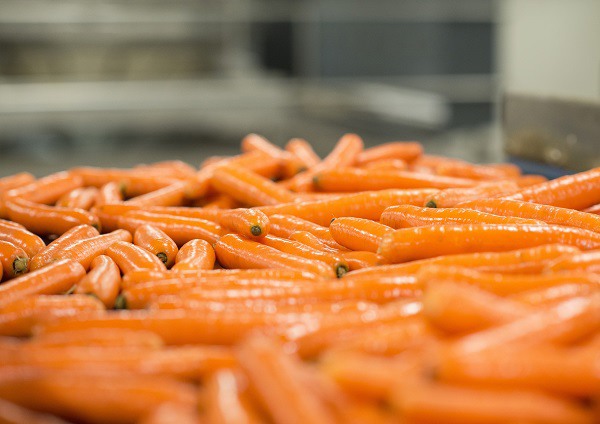The primary sector is making things tricky for the upcoming season. That applies to both the fresh and industry markets. This is obvious to the Belgian company, Group Verduyn, which serves both. According to CEO Alexander Verduyn, there's only just enough sown to meet demand. "The lack of rain during the sowing season is already putting pressure on several crops', like peas and carrots' yields," he begins.

It was too dry to sow those products. Should the dry weather continue during the growing season, Alexander expects there will be shortages. "We already see these in wheat and corn on the global market. The same could happen with vegetables. It's hard to say what will happen if the weather and temperatures don't play along during the growing season."
At present, it is mainly a matter of waiting and seeing. What is evident, though, is that cost prices are rising rapidly, putting crop yields under enormous pressure. Again, referring to corn and wheat, whose prices had risen sharply by the end of 2021 already, Verduyn says those prices are currently going through the roof because of the war in Ukraine.
"Wheat and corn are big competitors for industry vegetables. That has a knock-on effect. They also use energy, raw materials, and artificial fertilizer, which is reflected in sharply rising cost prices for our industry vegetables. Then you can also add skyrocketing labor costs," Alexander explains.
That puts industry vegetables, which have been struggling for some time, under significant pressure. The closely linked chains' pricing is under pressure. Industry vegetable prices are far more stable than those of wheat or corn. Prices based on past performance are negotiated annually. That complicates and obscures price increase settlements within the chain.
"We have to consider returns over several years and rely on what consumers are willing to pay. All costs have to be calculated and shared fairly. Should one player start taking losses, it might go well for a few years, but eventually, the whole chain topples. And that, obviously, isn't the intention. Given the current sharp increases in costs, food prices will rise. Food is a basic need, and if all sorts of other consumer goods' prices increase, so must food. People have to start realizing that."
There is little synergy between the fresh and industry markets, which are not interchangeable. "The industry vegetable business works entirely on contract to buy and sell. We get suitable products from our growers - independent or cooperative affiliated - for our industry customers. They grow according to end client specifications," Verduyn says.
"So, the crops are particular in terms of varieties, qualities, and pesticide use. So, if there's an unexpected surplus, it's tough to switch to the fresh market. But products intended for the fresh market don't easily reach the industry either. There's too much of a price difference."
Some fresh market purchases are done on contract; 90% is sold on the free market. Most full soil vegetables on the fresh market store well and can be supplied and sold all year round, except for cauliflower and broccoli, which are more seasonal.
Industry vegetables, both carrots, and other vegetables, are supplied to industry processors for about five months of the year. "We specialize in baby carrots. After all, that's where Group Verduyn's roots lie. They are washed, sorted, and cut for delivery. We use optical scanners and lasers to quality-select the vegetables. In total, we process 100,000 tons of industry vegetables. Besides carrots, we do salsify, Brussels sprouts, cauliflower, celeriac, celery, green celery, leeks, turnips, spinach, broccoli, and sliced carrots," Alexander concludes.
Alexander Verduyn Verduyn
Verduyn
Galgestraat 9
8610 Kortemark
Belgium
+32(0)5157 00 56
info@verduyn.be
www.verduyn.be
